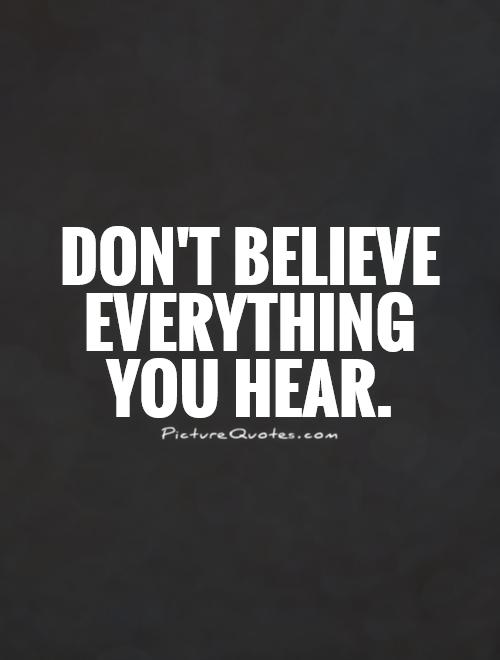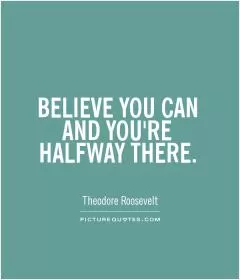Don't believe everything you hear

Don't believe everything you hear
Belief is a powerful force that shapes our perceptions, decisions, and actions. It is the foundation of our understanding of the world and the people around us. However, belief can also be a double-edged sword, as it can lead us astray if we are not discerning in what we choose to believe. This is where the age-old adage, "Don't believe everything you hear," comes into play.In today's fast-paced and information-saturated world, it is more important than ever to be critical of the information that comes our way. With the rise of social media and the spread of fake news, it has become increasingly difficult to separate fact from fiction. This is why it is crucial to approach everything we hear with a healthy dose of skepticism.
When we believe everything we hear without question, we run the risk of falling victim to misinformation, manipulation, and deception. This can have serious consequences, both on a personal level and on a larger societal scale. For example, believing false information about a certain group of people can lead to prejudice and discrimination. Believing in miracle cures or get-rich-quick schemes can lead to financial ruin. Believing in conspiracy theories can lead to a breakdown in trust and social cohesion.
On the other hand, being overly skeptical and refusing to believe anything can also be detrimental. It can lead to a cynical and closed-minded outlook on life, preventing us from experiencing new ideas and perspectives. It can also hinder our ability to form meaningful relationships and connections with others.
So how can we strike a balance between being too gullible and too skeptical? The key lies in being discerning and critical in our thinking. We should question the source of the information, consider the evidence supporting it, and seek out multiple perspectives before forming a belief. We should also be open to changing our beliefs in light of new evidence or information.












 Friendship Quotes
Friendship Quotes Love Quotes
Love Quotes Life Quotes
Life Quotes Funny Quotes
Funny Quotes Motivational Quotes
Motivational Quotes Inspirational Quotes
Inspirational Quotes